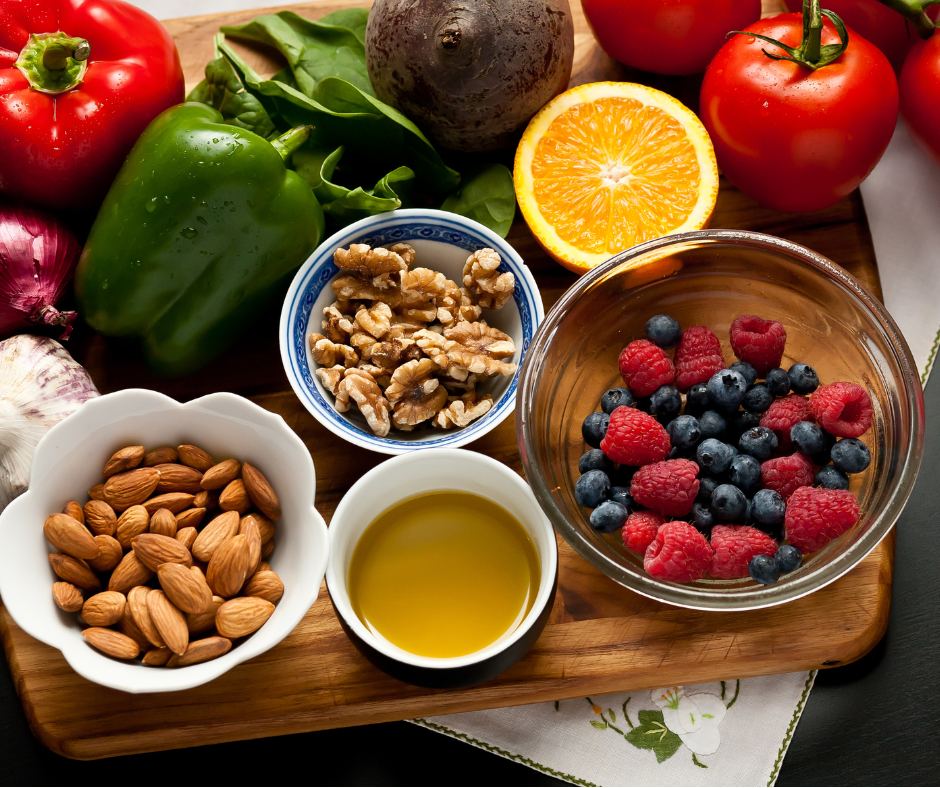
Inflammation is a natural process that occurs in our body to fight off infections and heal injuries. However, when the immune system becomes chronically activated, inflammation can become a serious health concern. Chronic inflammation has been linked to a range of health problems, including cardiovascular disease, diabetes, and cancer. Therefore, reducing inflammation is an important goal for maintaining optimal health. One effective way to reduce inflammation is through diet. An anti-inflammatory diet is a way of eating that emphasizes whole, nutrient-dense foods that can help to reduce inflammation in the body.
What is an anti-inflammatory diet?
An anti-inflammatory diet is a way of eating that emphasizes whole, nutrient-dense foods and limits processed foods, sugar, and unhealthy fats. The goal of this diet is to reduce chronic inflammation in the body, which is linked to a range of health problems. This diet is rich in antioxidants, which can help to neutralize free radicals that contribute to inflammation. It also emphasizes foods that are high in omega-3 fatty acids, which have anti-inflammatory properties.
Foods to include in an anti-inflammatory diet
An anti-inflammatory diet should focus on whole, nutrient-dense foods. Some of the best foods to include in this diet include:
- Fruits and vegetables: Fruits and vegetables are rich in antioxidants and other nutrients that can help to reduce inflammation. Aim to eat a variety of colorful fruits and vegetables every day.
- Whole grains: Whole grains are an important source of fiber, which can help to reduce inflammation in the body. Some good choices include brown rice, quinoa, and whole wheat.
- Healthy fats: Healthy fats, such as those found in nuts, seeds, and avocados, can help to reduce inflammation. They are also important for overall health.
- Omega-3 fatty acids: Omega-3 fatty acids are a type of healthy fat that have anti-inflammatory properties. Good sources include fatty fish like salmon, as well as flaxseed, chia seeds, and walnuts.
- Herbs and spices: Herbs and spices are a great way to add flavor to food without adding calories. Many herbs and spices also have anti-inflammatory properties. Some good choices include turmeric, ginger, and garlic.
- Tea: Green tea and other herbal teas are rich in antioxidants and can help to reduce inflammation.
Foods to avoid in an anti-inflammatory diet
Just as important as the foods to include in this diet are the foods to avoid. Some of the worst offenders when it comes to inflammation include:
- Sugar: Sugar is a major contributor to inflammation in the body. It can also lead to weight gain and other health problems.
- Processed foods: Processed foods are often high in sugar, unhealthy fats, and other additives that can contribute to inflammation. Examples include fast food, snack foods, and packaged desserts.
- Trans fats: Trans fats are a type of unhealthy fat that can contribute to inflammation. They are often found in processed foods, fried foods, and baked goods.
- Red meat: Red meat is high in saturated fat, which can contribute to inflammation. It is also linked to an increased risk of heart disease and other health problems.
- Alcohol: Alcohol can contribute to inflammation in the body, especially when consumed in excess.
Benefits of an anti-inflammatory diet
There are many benefits to following this diet. Some of the most important include:
- Reduced inflammation: The primary benefit of an anti-inflammatory diet is that it can help to reduce chronic inflammation in the body. This can help to reduce the risk of many chronic diseases.
- Improved heart health: An anti-inflammatory diet can help to lower cholesterol levels and reduce the risk of heart disease.
- Weight loss: An anti-inflammatory diet is rich in nutrient-dense, low-calorie foods, which can help to promote weight loss and reduce the risk of obesity.
- Improved gut health: An anti-inflammatory diet can help to improve gut health by promoting the growth of healthy gut bacteria and reducing inflammation in the gut.
- Better brain function: An anti-inflammatory diet has been linked to improved brain function and a reduced risk of cognitive decline and dementia.
- Improved mood: Some studies suggest that an anti-inflammatory diet can help to improve mood and reduce symptoms of depression.
How to start an anti-inflammatory diet
Starting this diet is easier than you might think. Here are some tips to get started:
1.Focus on whole, nutrient-dense foods: Make sure that the majority of your diet consists of whole, nutrient-dense foods like fruits, vegetables, whole grains, and healthy fats.
2. Avoid processed foods: Try to avoid processed foods as much as possible, as they are often high in sugar, unhealthy fats, and other additives that can contribute to inflammation.
3. Cook at home: Cooking at home is a great way to ensure that you are eating whole, nutrient-dense foods. It also allows you to control the ingredients and avoid unhealthy additives.
4. Experiment with herbs and spices: Herbs and spices are a great way to add flavor to food without adding calories. Many herbs and spices also have anti-inflammatory properties.
5. Limit sugar and alcohol: Try to limit your intake of sugar and alcohol, as both can contribute to inflammation in the body.
6. Incorporate omega-3 fatty acids: Try to incorporate foods that are rich in omega-3 fatty acids, like fatty fish, flaxseed, chia seeds, and walnuts.
7. Stay hydrated: Make sure to drink plenty of water throughout the day to keep your body hydrated and promote overall health.
Conclusion
An anti-inflammatory diet is a way of eating that emphasizes whole, nutrient-dense foods and limits processed foods, sugar, and unhealthy fats. By reducing chronic inflammation in the body, an anti-inflammatory diet can help to reduce the risk of many chronic diseases, including heart disease, diabetes, and cancer. If you are looking to improve your health, consider incorporating more anti-inflammatory foods into your diet and limiting your intake of inflammatory foods. With a little bit of planning and preparation, you can start reaping the benefits of this diet today.
<<<See if you qualify for a FREE presentation on achieving optimal health>>>


